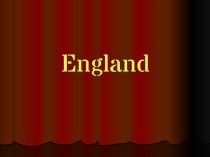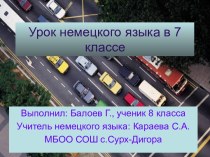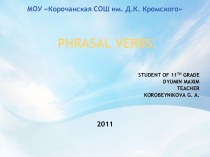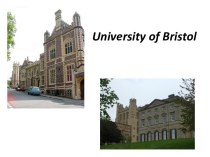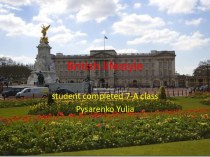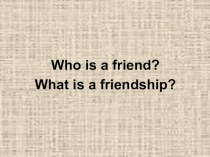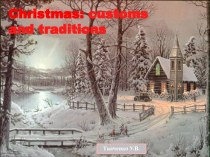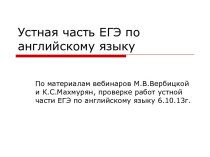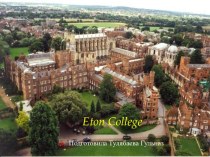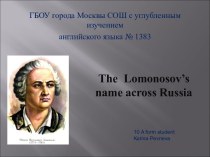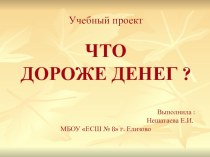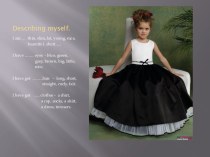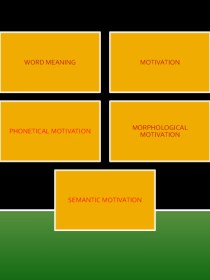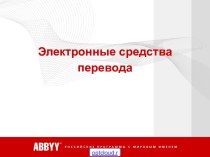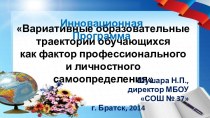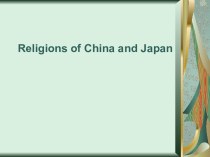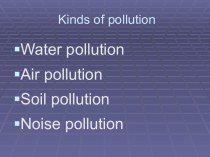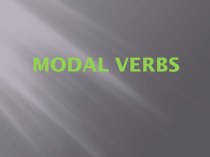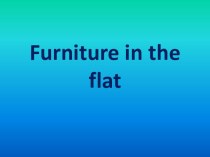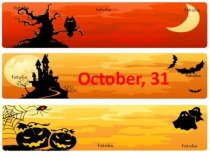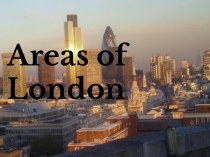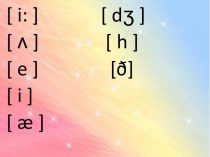- Главная
- Разное
- Бизнес и предпринимательство
- Образование
- Развлечения
- Государство
- Спорт
- Графика
- Культурология
- Еда и кулинария
- Лингвистика
- Религиоведение
- Черчение
- Физкультура
- ИЗО
- Психология
- Социология
- Английский язык
- Астрономия
- Алгебра
- Биология
- География
- Геометрия
- Детские презентации
- Информатика
- История
- Литература
- Маркетинг
- Математика
- Медицина
- Менеджмент
- Музыка
- МХК
- Немецкий язык
- ОБЖ
- Обществознание
- Окружающий мир
- Педагогика
- Русский язык
- Технология
- Физика
- Философия
- Химия
- Шаблоны, картинки для презентаций
- Экология
- Экономика
- Юриспруденция
Что такое findslide.org?
FindSlide.org - это сайт презентаций, докладов, шаблонов в формате PowerPoint.
Обратная связь
Email: Нажмите что бы посмотреть
Презентация на тему House of Commons
Содержание
- 2. Conference Room of the House of Commons, Palace of Westminster, London
- 3. The history Parliament has
- 4. ElectionsElected for five years by universal, equal
- 5. Members of the House of Commons can
- 6. StructureThe number of elected
- 7. OfficialsThe SpeakerDeputy Speaker Leader Clerk
- 8. Political parties
- 9. Relationship with the GovernmentThe Chamber does not
- 10. Скачать презентацию
- 11. Похожие презентации
Conference Room of the House of Commons, Palace of Westminster, London
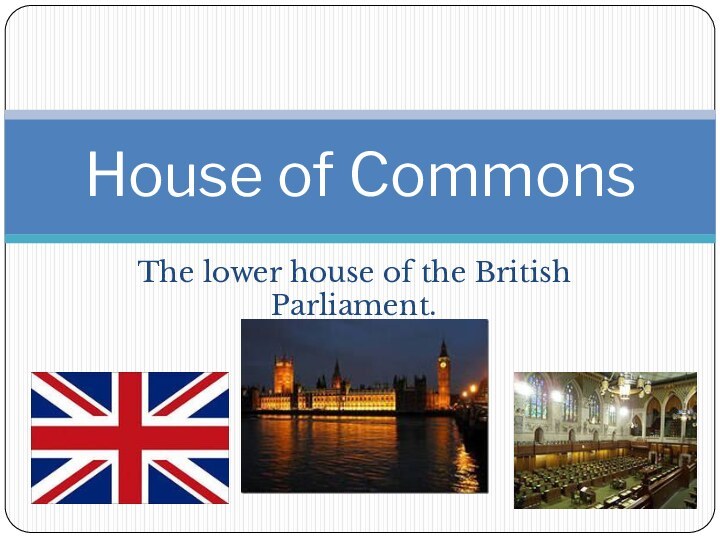
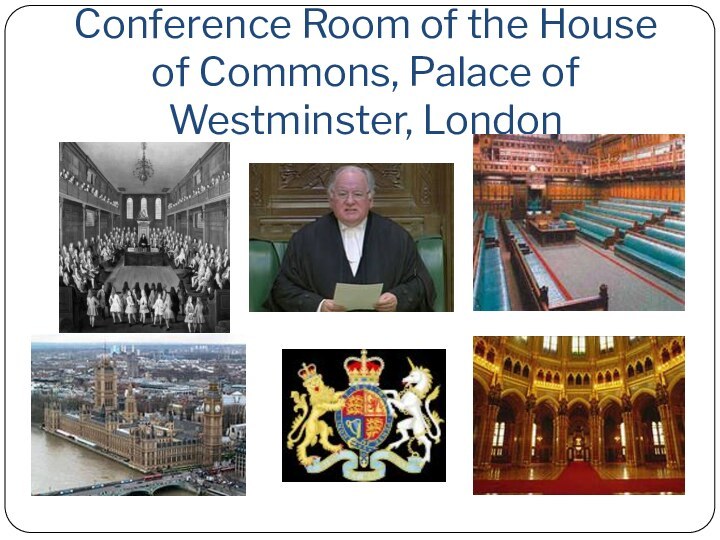
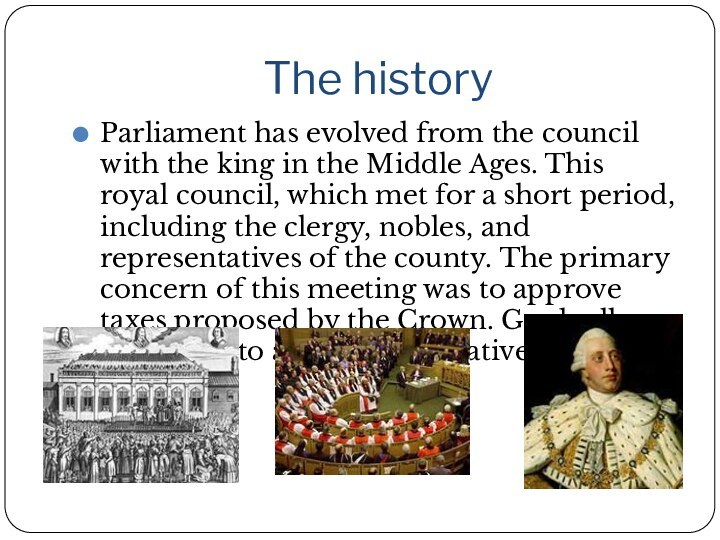
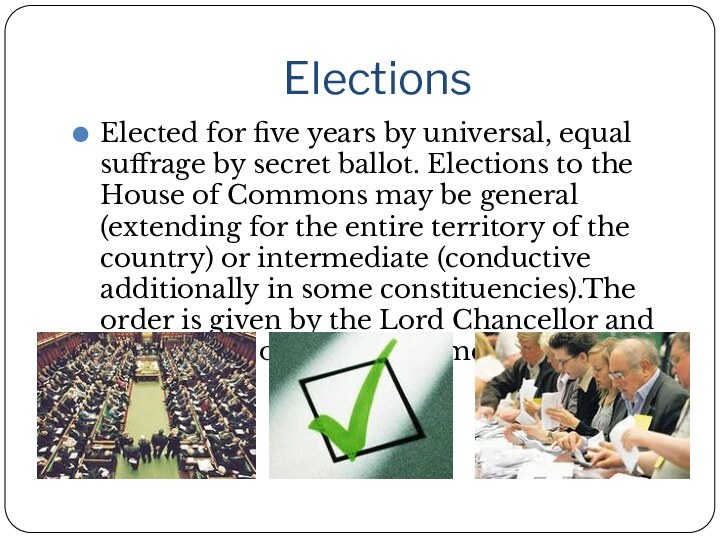
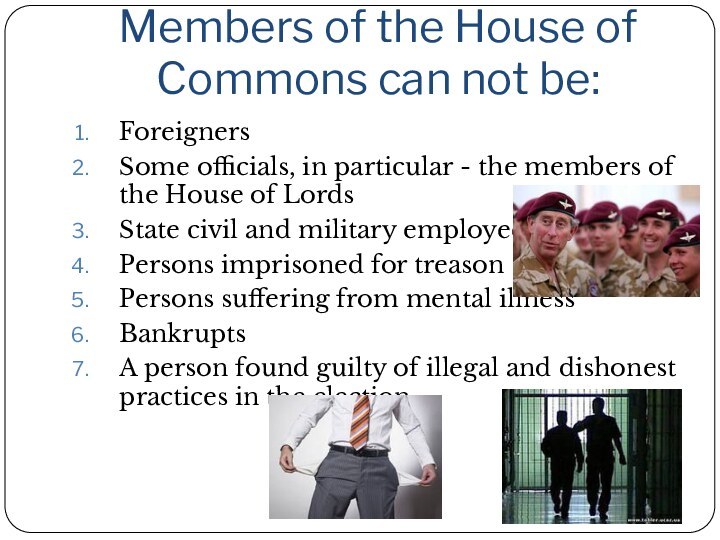
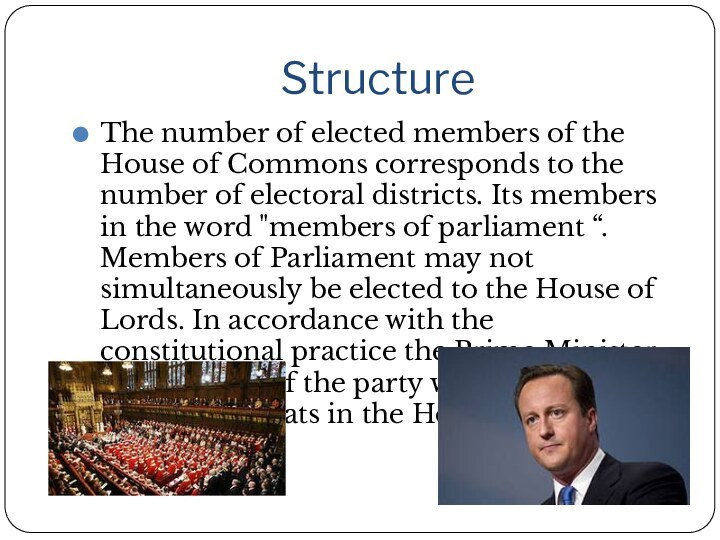
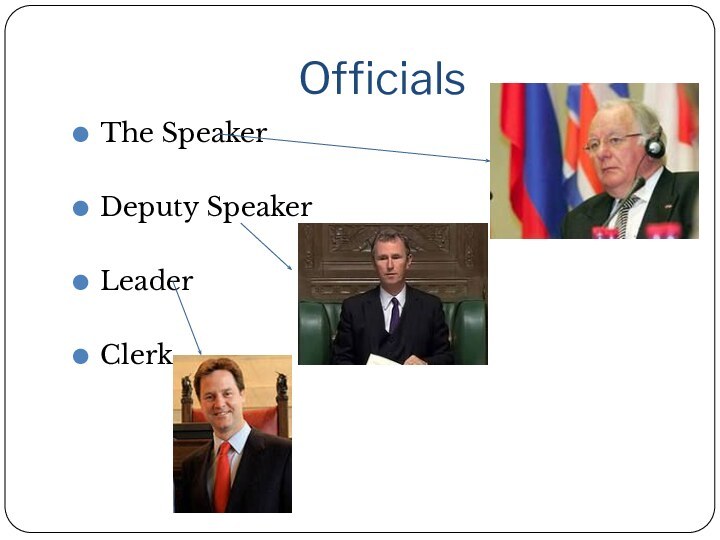
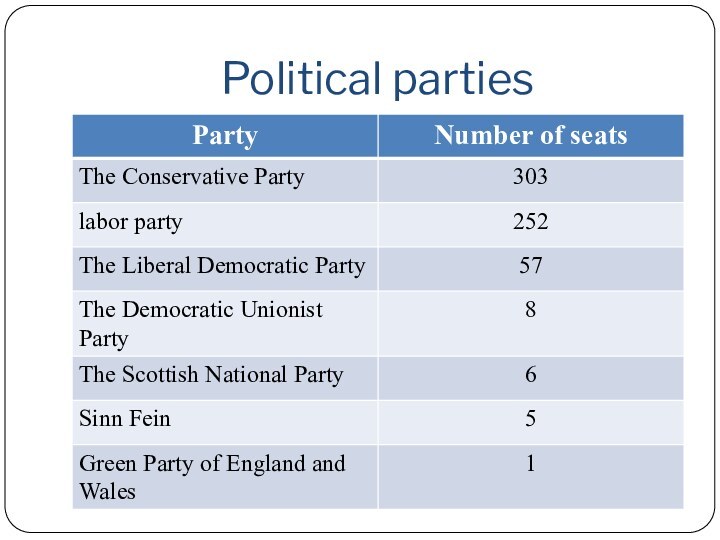

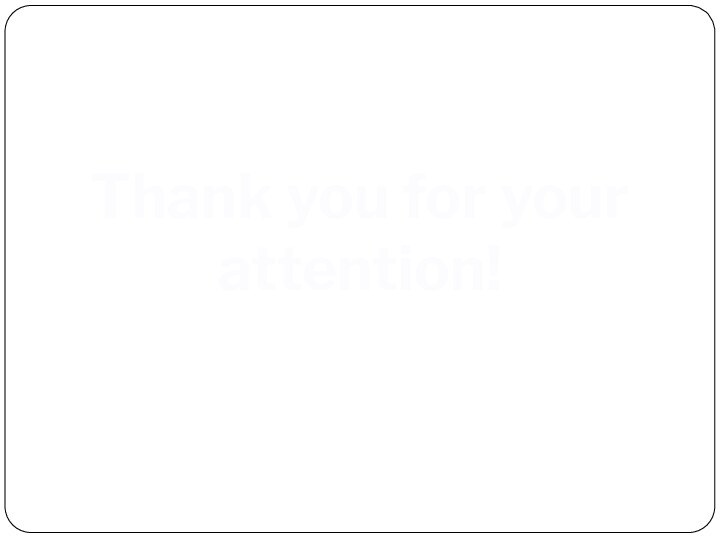
Слайд 3
The history
Parliament has evolved from the council
with the king in the Middle Ages. This royal
council, which met for a short period, including the clergy, nobles, and representatives of the county. The primary concern of this meeting was to approve taxes proposed by the Crown. Gradually evolved into a council legislative power.
Слайд 4
Elections
Elected for five years by universal, equal suffrage
by secret ballot. Elections to the House of Commons
may be general (extending for the entire territory of the country) or intermediate (conductive additionally in some constituencies).The order is given by the Lord Chancellor and contains an order to the time of the election.Слайд 5 Members of the House of Commons can not
be:
Foreigners
Some officials, in particular - the members of
the House of Lords State civil and military employees
Persons imprisoned for treason
Persons suffering from mental illness
Bankrupts
A person found guilty of illegal and dishonest practices in the election.
